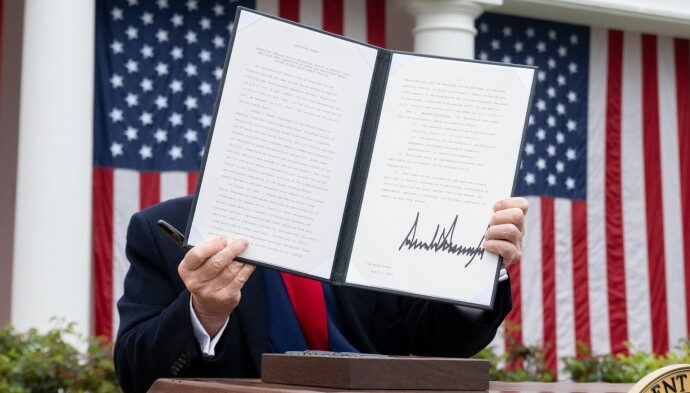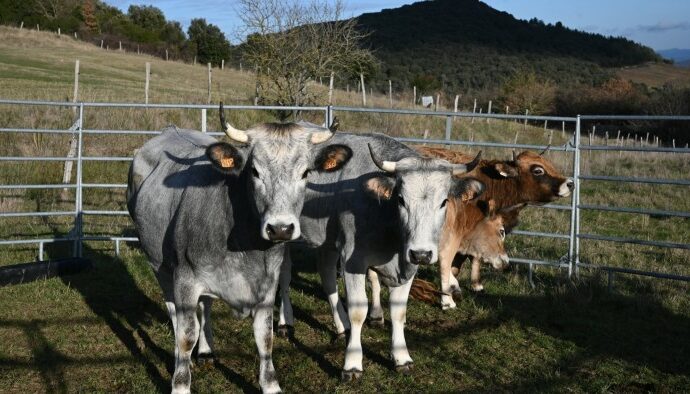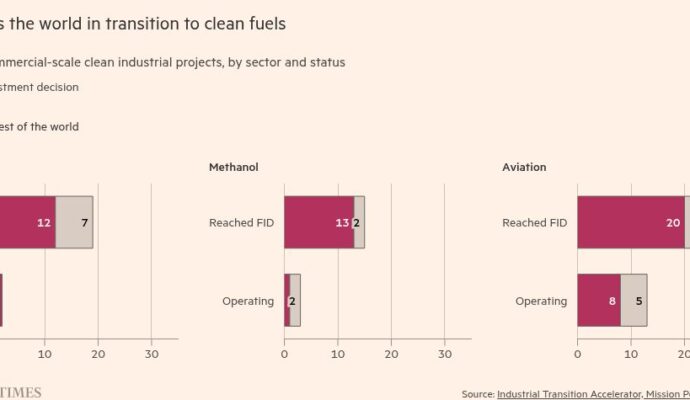
Inconclusive origins
It’s been more than 18 months since the first cases of a mysterious “pneumonialike illness” were reported in Wuhan, China. The world still isn’t any closer to understanding how the pandemic started.
The director of national intelligence delivered a preliminary report to President Biden on Tuesday about the pandemic’s origin. But officials have yet to answer the biggest question: whether the coronavirus was the result of an accidental leak from a Wuhan lab or whether it emerged naturally in a spillover from animals to humans.
Officials have repeatedly warned that finding the precise origins of the pandemic may be more a job for scientists than spies.
The absence of conclusions also underscores the challenges posed by China’s refusal to cooperate with international investigations into the origin of the coronavirus.
Recently, China’s leaders have been promoting a fringe conspiracy theory that claims the virus came from an American military research facility. A Chinese foreign ministry spokesman cited groundless claims that the coronavirus may have first leaked from Fort Detrick, Md. State media has promoted a rap song by a patriotic Chinese hip-hop group that touted the same claim, with the lyrics: “How many plots came out of your labs?”
Chinese officials have also punished journalists who reported on the country’s failures in handling the Wuhan outbreak.
Zhang Zhan, a 37-year-old citizen journalist, traveled to Wuhan in the early days of the pandemic and challenged the government’s efforts to portray its initial response as competent and caring. She was imprisoned for “picking quarrels and provoking trouble,” a vague charge often used to target dissent, and is now seriously ill from a hunger strike.
“The government’s way of managing this city has just been intimidation and threats,” she said in her last video before her detention. “This is truly the tragedy of this country.”
On Wednesday, W.H.O. experts warned that further delays could make it impossible to recover crucial evidence about the early days of the pandemic.
“The window is rapidly closing on the biological feasibility of conducting the critical trace-back of people and animals inside and outside China,” the experts wrote in an editorial in the journal Nature.
Aug. 27, 2021, 2:35 p.m. ET
Churches vs. Covid
After months of lockdown, the pews are packed on Sunday mornings at Our Lady of Lourdes in Harlem. Prayer groups meet after work and the collection plate is almost as full as it was before the pandemic began.
But, as with so many houses of worship in New York City, the Delta variant is again making many worry about worshiping together.
“For a little while everyone felt more free, not using masks and things like that,” said the Rev. Gilberto Ángel-Neri, the church’s pastor. “But now that we hear all the news about the Delta variant, everyone is using masks again.”
The progress made at Ángel-Neri’s church, and at houses of worship across New York City, may be threatened by a rise in virus cases in the past month and by an uneven patchwork of rules governing vaccination that can differ from one place to another.
Understand Vaccine and Mask Mandates in the U.S.
- Vaccine rules. On Aug. 23, the Food and Drug Administration granted full approval to Pfizer-BioNTech’s coronavirus vaccine for people 16 and up, paving the way for an increase in mandates in both the public and private sectors. Private companies have been increasingly mandating vaccines for employees. Such mandates are legally allowed and have been upheld in court challenges.
- Mask rules. The Centers for Disease Control and Prevention in July recommended that all Americans, regardless of vaccination status, wear masks in indoor public places within areas experiencing outbreaks, a reversal of the guidance it offered in May. See where the C.D.C. guidance would apply, and where states have instituted their own mask policies. The battle over masks has become contentious in some states, with some local leaders defying state bans.
- College and universities. More than 400 colleges and universities are requiring students to be vaccinated against Covid-19. Almost all are in states that voted for President Biden.
- Schools. Both California and New York City have introduced vaccine mandates for education staff. A survey released in August found that many American parents of school-age children are opposed to mandated vaccines for students, but were more supportive of mask mandates for students, teachers and staff members who do not have their shots.
- Hospitals and medical centers. Many hospitals and major health systems are requiring employees to get a Covid-19 vaccine, citing rising caseloads fueled by the Delta variant and stubbornly low vaccination rates in their communities, even within their work force.
- New York City. Proof of vaccination is required of workers and customers for indoor dining, gyms, performances and other indoor situations, although enforcement does not begin until Sept. 13. Teachers and other education workers in the city’s vast school system will need to have at least one vaccine dose by Sept. 27, without the option of weekly testing. City hospital workers must also get a vaccine or be subjected to weekly testing. Similar rules are in place for New York State employees.
- At the federal level. The Pentagon announced that it would seek to make coronavirus vaccinations mandatory for the country’s 1.3 million active-duty troops “no later” than the middle of September. President Biden announced that all civilian federal employees would have to be vaccinated against the coronavirus or submit to regular testing, social distancing, mask requirements and restrictions on most travel.
While New York City has some of the strictest vaccination mandates in the country, they do not apply to religious services. Over the past year, pandemic-related rules forced many churches to shut their doors for months or limit attendance.
Many houses of worship depend on in-person donations to pay their bills. Our Lady of Lourdes, for example, lost about $3,000 a week in donations when the church closed. Parishioners also lost a vital community center.
“Faith is a light to help you navigate through uncertainty and darkness,” said John Gehring, the Catholic program director at the advocacy group Faith in Public Life. “But what a lot of people have been grappling with is what do you do when church itself becomes a place of anxiety.”
What else we’re following
What you’re doing
I work at a small hospital running a hyperbaric chamber for dive emergencies and oxygen therapy. Unfortunately, being a small place, the Covid testing is in the same area. I am 64, with lifelong Type 1 diabetes, and I contracted Covid despite being fully vaccinated. Luckily, I feel the vax helped protect me from serious complications and made my bout with it fairly short. I, however, am afraid to go back to work. I will definitely take the booster shot when I can. — Stephen Prosterman, St. Thomas, U.S. Virgin Islands
Let us know how you’re dealing with the pandemic. Send us a response here, and we may feature it in an upcoming newsletter.


